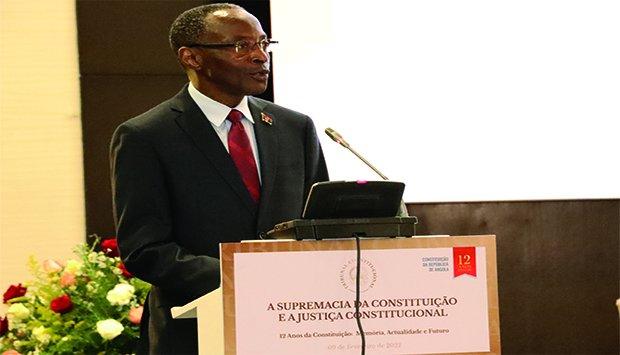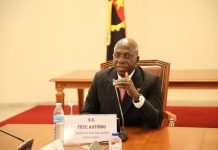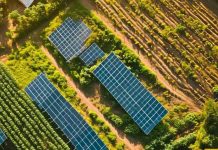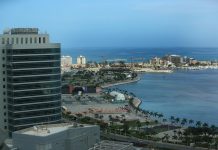Africa-Press – Angola. With six months to go before the next general elections, the Vice-President of the Republic, Bornito de Sousa, urged Angolans on Wednesday (9th) to “make the best choices”.
He also appealed to political actors and citizens to preserve National Independence, peace and freedom, goods that were difficult to achieve.
Speaking at the opening of the Magna Conference on the Supremacy of the Constitution and Constitutional Justice, Bornito de Sousa underlined that the moment demands from each Angolan, member of society, the responsibility to make the best choices and that everyone is able to gather and build, and never separate and destroy what has cost so much: Independence, peace and freedom”.
In the presence of political and religious leaders, members of civil society, specialists and law students, the Vice-President of the Republic clarified that this is not to say that one should choose the easiest, but rather, among so many possible paths. , always opting for Angola, as a “great nation that needs all its children”.
“Both now, as after August, we will all be few to continue this great work, which is Angola”, he highlighted, before referring to the conference, whose initiative encouraged, above all, by the universalization of knowledge of the text of the Constitution from childhood to youth. .
The Vice-President defended that the Constitution be translated into English, French, Spanish and German, with the amendments from the 2021 revision, as well as the translation into the main Angolan languages of African origin.
At the highest point of the meeting, alluding to the 12th anniversary of the promulgation of the Constitution of the Republic of Angola (CRA), on 5 February 2010, the memory, current affairs and future of the Magna Carta were also analysed.
CRA is the beacon of the nation
The Constitution of the Republic, he said, is the beacon of a nation and represents the agenda with which a country is organized and governed. “As we celebrate 12 years since the entry into force of the Constitution of the Republic of Angola, it is opportune to take a look at the constituent process that culminated, precisely, on 5 February 2010, with its promulgation and inauguration of the Third Republic”, remembered.
The date, he added, marks the end of a long journey of delivery, but also of trials and challenges in a constituent process that engaged the National Assembly, in the exercise of constituent powers through a commission of 60 deputies and 19 Angolan experts, firmly committed with the highest ideals and values of the State: Independence, freedom and sovereignty of the people.
“Anyone who thinks and looks at the 2010 Constitution and its constituent process are wrong only as a result of the work of those people, whose names are inscribed in the final part of the text of the Constitution, as constituent legislators, when, in reality, it results from the accumulation of of valuable experiences and a long process of political maturation, through the various constituent processes, namely those of 1975, 1978 and 1991/-1992”, he said.
In a historic incursion into the constitutional process, Bornito de Sousa highlighted the period of the 1991 Bicesse Accords negotiating days, “where a kind of task force was born, formed by a handful of Angolan cadres, who were given the responsibility of creating the constitutional text that would, on a transitional basis, shape the way in which the State was organized and operated, until the Constitution came into force.”
It was on the basis of the Constitutional Law of 1992, approved by the then single party, that the first Elections were held. 1992 Presidential and Legislative Elections, with occasional changes, in addition to having been the same with which the 2008 General Elections took place, whose results legitimized the constituent mandate
.
For the Vice-President, the punctual revision of the 2021 Constitution, on the initiative of the President of the Republic and formalized through Law nº 18/21, of 16 August, aimed to adapt it to the country’s context and improve some matters that were not found sufficiently treated, consecrating others, then absent.
As well as the proposal to change the country’s current Political-Administrative Division, based on the reconfiguration of five provinces, namely Cuando Cubango, Lunda-Norte, Malanje, Moxico and Uíge, still pending completion, Bornito de Sousa said that the revised document clarifies the institutional and functional relationship between the Executive and Legislative powers, but does not essentially change the powers and role of the Constitutional Court, along with means and institutes such as the so-called constitutional binding of public authorities, the limits of the revision of the Constitution and the separation and interdependence of sovereign bodies.
Maturity of institutions
For her part, the judge-president of the Constitutional Court, Laurinda Cardoso, said that the implementation of the constitutional norms goes through a process of maturation of public and private institutions.
In this, she added, the Constitutional Court is one of the main pillars and guarantor of the materialization of these norms to function as a true guardian of the democratic and lawful State and of fundamental rights, freedoms and guarantees.
“The constitution of any State is not just an instrument that defines the legal status of political power. It is, above all, a project of society that defines the political, social, economic and cultural aspirations of its people”, she reinforced.
Angolan constitutionalism, he stressed, underwent several metamorphoses that marked national history, with the “great leap” of evolution taking place in February 2010, which resulted in the culmination of a long transition process.
Reaction of political parties
In reaction to the challenge of the Vice-President of the Republic, deputy Mário Pinto de Andrade (MPLA) said that in Angola we have to fight for perpetual peace and we must maintain serenity.
He recognized that there is a great responsibility at this stage of an electoral and pre-election process: “Peace is the greatest public good that Angolans have won after 27 years of civil war and it must be preserved”.
In the context of the electoral process, he stressed that there must be a message of tolerance and respect for the other and not set fire to public goods, and dialogue must prevail.
For the president of the Parliamentary Group of UNITA, Liberty Chiyaca, the promulgation of the Constitution of the Republic, on 5 February, represents the end of a long process of dialogue, consultation and rupture of the Angolan constitutional process.
In terms of law, she observed, it has evolved a lot and has substantial gains that need to be transposed from a formal to a material dimension. “The biggest challenge facing the country is the consolidation of our Rule of Law”, she reaffirmed.
As for the Vice-President’s challenge on the responsibility of each Angolan, Liberty Chiyaca believes that all political actors must ensure that everything is aligned with national designs.
For More News And Analysis About Angola Follow Africa-Press






